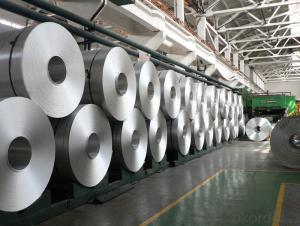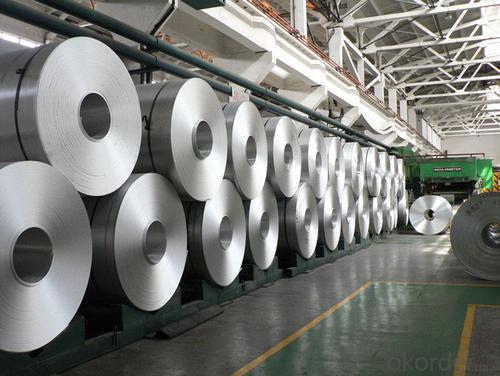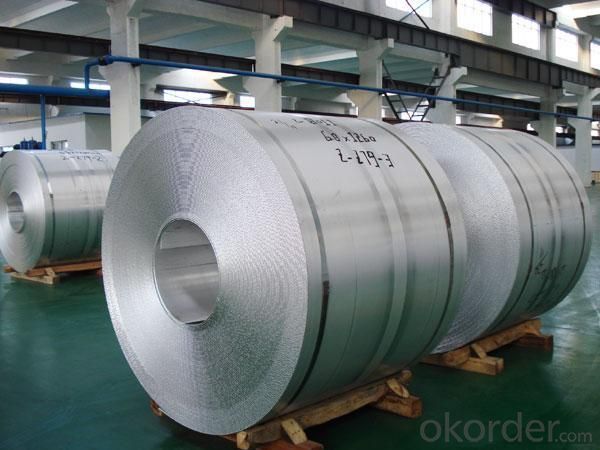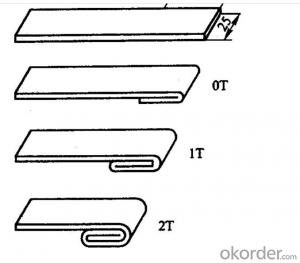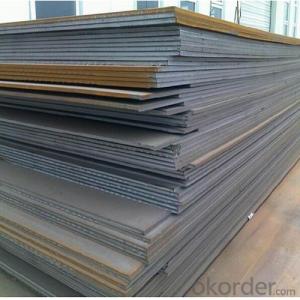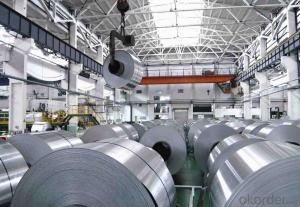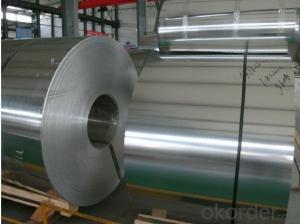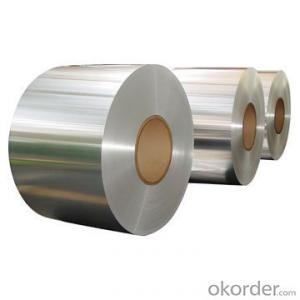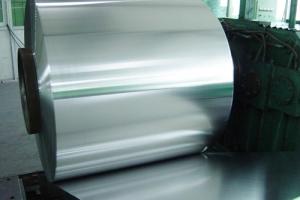Thin Aluminum Sheets for Sale - CC Aluminium Coils for Cookware Production
- Loading Port:
- Shanghai
- Payment Terms:
- TT OR LC
- Min Order Qty:
- 5 m.t.
- Supply Capability:
- 20000 m.t./month
OKorder Service Pledge
OKorder Financial Service
You Might Also Like
Specification
1.Structure of CC Aluminium Coils of Cookware
Continuous Casting Aluminium Strip in Coil is one semi-finished aluminium material. This strip can be rolled down to aluminium coil,sheet,circle ect. The alloy AA1050 is widly used in building, industry ect. Its weight is much lower than steel. So many customers choosed aluminium material instead of steel.
2. Main features of CC Aluminium Coils of Cookware
a.Competitive price---We have our own mills and can produce mill finished aluminium coils, so we can control the production cost better.
b.Professional after-sale service---We have more than 15 years exportation experience and you need not worry about the exporation problems.
c.Fast delivery time---We can control the delivery time within 35 days.
3. Image
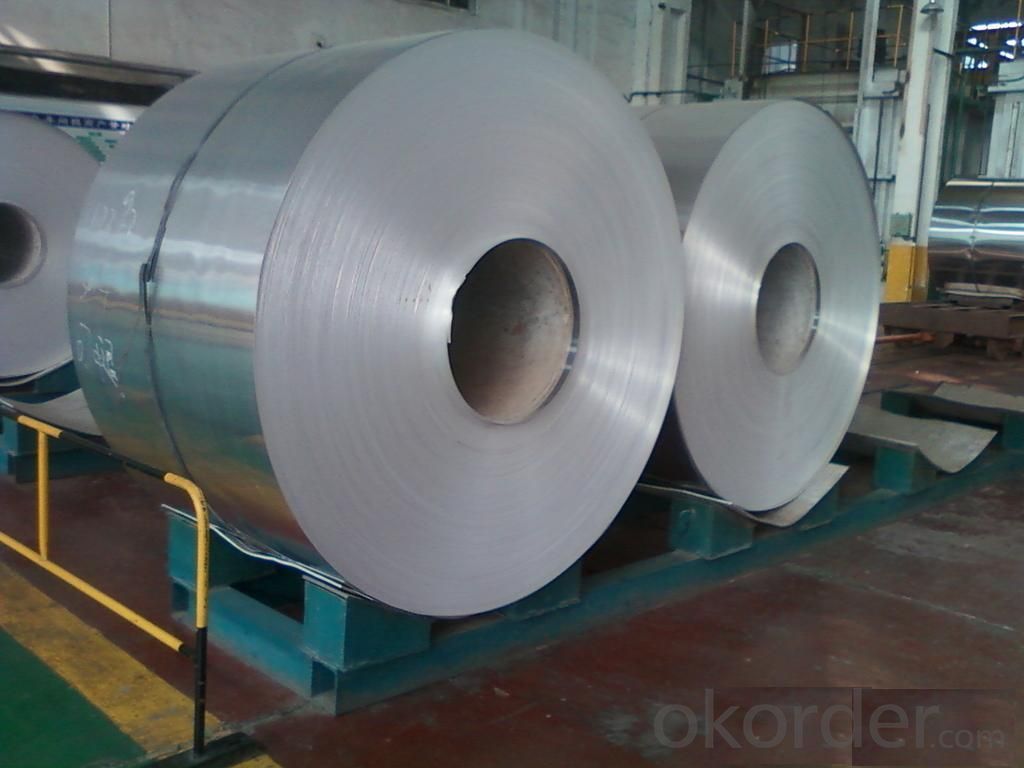
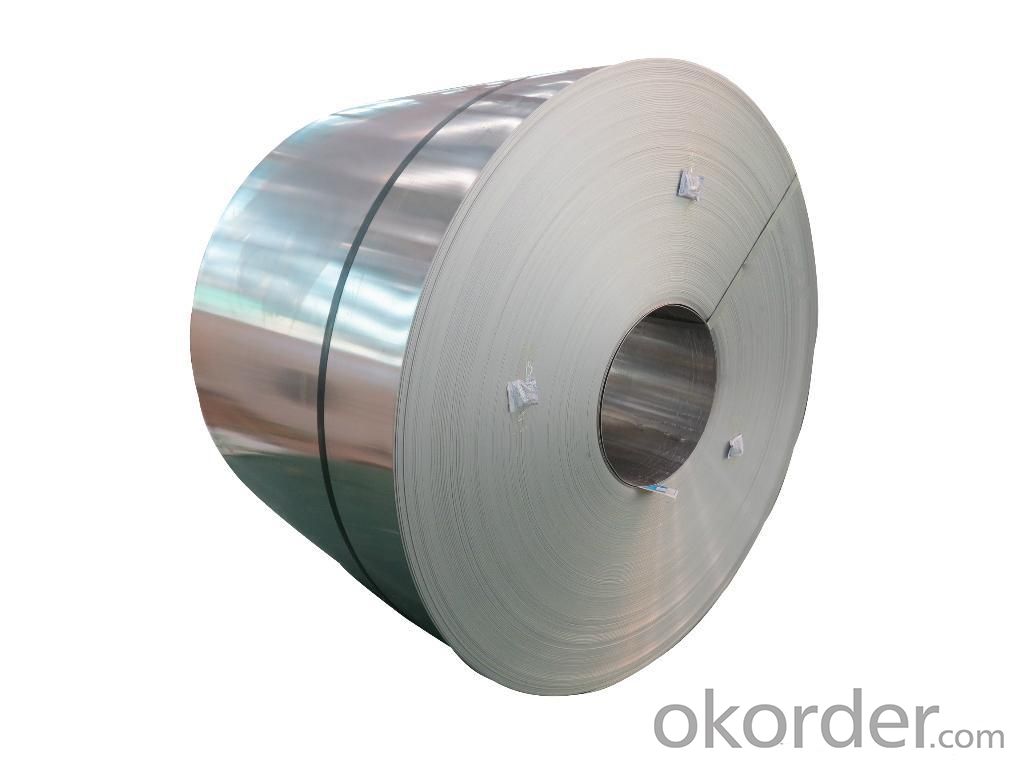
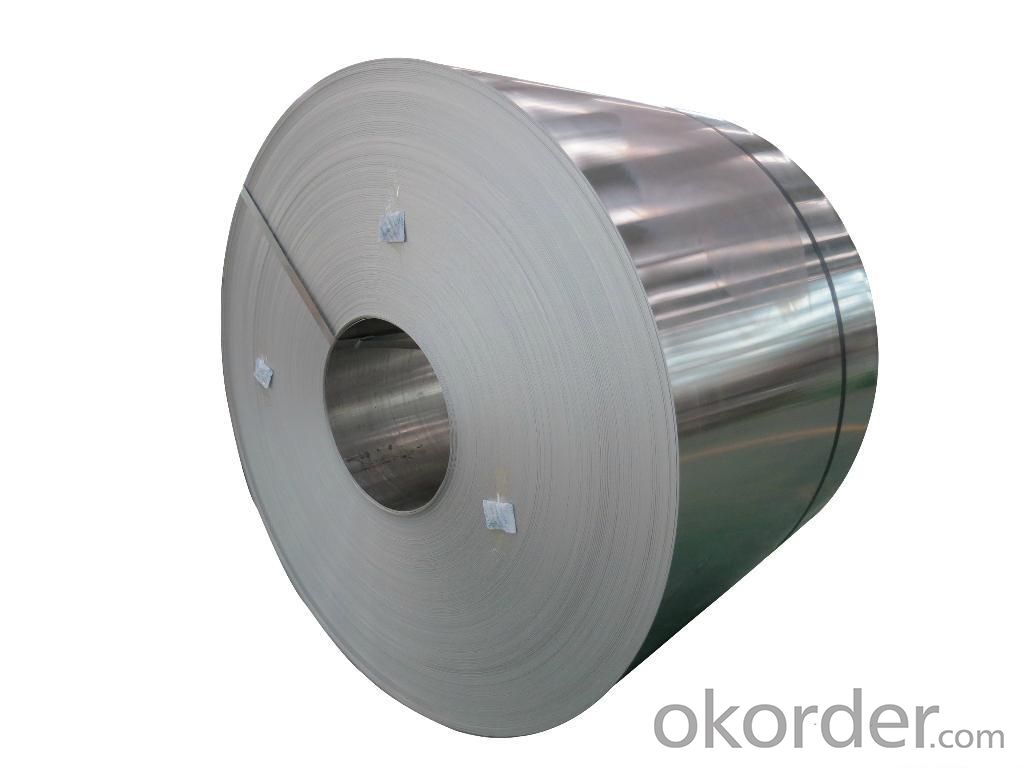
4. Product Specification
| Alloy | Temper | Style | Thickness | Width |
| AA1100 | H14 | Continuous Casting | 0.2mm-3mm | 1000mm-1500mm |
5.FAQ:
What is the quality standard?
---Usually our standard is GB3880-2006
What is the largest width?
---It is 2300mm
What is the MOQ?
---Usually we can accept 80 tons.
- Q: What are the different methods of surface treatment for aluminum sheets?
- Some of the different methods of surface treatment for aluminum sheets include anodizing, powder coating, painting, polishing, and brushing.
- Q: Are aluminum sheets suitable for elevator interiors?
- Yes, aluminum sheets are suitable for elevator interiors. Aluminum is a durable and lightweight material that is resistant to corrosion, making it ideal for use in elevator interiors. It can be easily customized and offers a sleek and modern aesthetic. Additionally, aluminum is easy to clean and maintain, making it a practical choice for elevator interiors.
- Q: Is it possible to incorporate recycled aluminum sheets into a construction project?
- <p>Yes, you can use recycled aluminum sheets in your building project. Recycled aluminum is not only environmentally friendly but also cost-effective. It maintains the same strength and durability as new aluminum, making it suitable for various construction applications such as roofing, siding, and structural components. Ensure that the recycled aluminum meets the required standards and specifications for your project to guarantee safety and performance.</p>
- Q: Are aluminum sheets resistant to rust?
- Yes, aluminum sheets are highly resistant to rust due to their natural oxide coating that forms a protective barrier against corrosion.
- Q: Can the aluminum sheets be used for manufacturing aircraft engine components?
- Indeed, the utilization of aluminum sheets is possible for the production of aircraft engine components. Due to its exceptional strength-to-weight ratio and resistance to corrosion, aluminum is extensively employed within the aerospace sector. Despite being lightweight, it possesses the necessary strength to endure the strains and elevated temperatures inherent in aircraft engines. Furthermore, aluminum sheets can be effortlessly fashioned, rendering them apt for the creation of intricate engine components. Taken together, the favorable mechanical properties and applicability to aerospace scenarios make aluminum sheets the preferred option for manufacturing aircraft engine components.
- Q: Are aluminum sheets easy to work with?
- Yes, aluminum sheets are generally considered easy to work with due to their lightweight nature, flexibility, and malleability. They can be easily cut, bent, shaped, and drilled, making them versatile for various applications in industries such as construction, automotive, and manufacturing.
- Q: I constructed a small hho generator for experimental purposes. I needed to add a cooling condenser to the unit because of a overheating problem. I was using a old heater core from a vehicle, soldered some joints to make some connections. the solution seemed to have eaten the solder I used, which was normal lead free solder used in water pipes. I was going to invest into a trans cooler core which is made of aluminum, but I need to know if the solution will eat up the aluminum. I also thought about using a condenser core from a broken window a/c, which is made of copper tubing. any advise would be very help full
- Figure out the Eknots using a chart. Cu -- Cu2+ = Enot of ? Al3+ --- Al = Enot of ? It needs to be positive to spontaneously react. I believe from memory that Al -- Al3+ is 1.3volts, so the reverse is negative. Meanwhile Cu is something under .5 volts, so it won't be enough to make the reaction work. This is further understood because aluminum requires a lot of energy to smelt from the oxide (which is the reverse reaction of Al3+ -- Al that you're talking about here) Secondly, do your homework man, it's REALLY obnoxious to add the why or why not and phrase everything exactly as your homework asks. Try to ask a question about the topic so you actually learn. For example, what are reduction potentials in terms of, for example, Cu --- Cu2+
- Q: Is it suitable to use aluminum sheets in outdoor settings where they will be subjected to weather conditions?
- <p>Yes, aluminum sheets can be used for outdoor applications, even when exposed to weathering. Aluminum is a durable and corrosion-resistant material, which makes it suitable for outdoor use. It does not rust like iron or steel and can withstand various weather conditions. However, it's important to use aluminum alloys specifically designed for outdoor use, and to apply protective coatings or finishes to enhance its resistance to weathering and extend its lifespan.</p>
- Q: 1. Why does aluminium resist corrosion?2. How do we make aluminium stronger?3. Why does titanium resist corrosion?4. What properties make titanium ideal to use in jet engines and nuclear reactors?5. Why do we need electricity to make aluminium and titanium?6. Why does recycling aluminium save electricity?Even if you only know the answer to one question the help will be much appreciated :D
- 1. When exposed to air, pure aluminium rapidly forms a passive oxide layer, alumina, which further inhibits aluminium reactions with other elements. 2. Aluminium can be made stronger by alloying with other elements. One of the most known aluminum alloy is duraluminium, where the principal alloying component is copper. 3. Exactly as aluminium, titanium corrosion resistance is due to its high reactivity with oxygen. When pure titanium is exposed to air it forms a passive titanium dioxide layer on the surfaces exposed which further prohibits other reactions with corrosion agents. 4. The use of titanium in jet engines components is favored by its strength to weight ration, which is unmatched by any other metal. As for the nuclear reactors, its use is preferred because of its superior corrosion resistance associated with fracture toughness and overall durability. 5. Both titanium and aluminium are refined from their respective mined ores - bauxite, for aluminium, ilmenite and rutile for titanium. Basically, these are oxides of the metals. Pure metal has to be reduced from these ores and processes involve use of temperatures up to and sometime exceeding 1000 degrees Celsius, which obviously requires a great consumption of energy, including electricity. Moreover, pure aluminium is obtained in the final processing phase through electrolysis, meaning an electrical current is needed in order to drive the required chemical reactions, thus adding to the electrical consumption. 6. Recycling aluminium from aluminium simply requires the remelting of the metal, eliminating the electrolytic phase that is high electric energy consuming.
- Q: How to clean the aluminium oxide on the surface of aluminum? What kind of materials should we use to clean the thin aluminum sheet, and what's the concentration?
- you can answer sodium hydroxide solution, dilute acid is useless, aluminum's oxide film is very thick,as for concentration, aluminum will be passivating in concentrated sulfuric acid. if you are high school student,higher concentration is better, you can complete deoxidation by abrasive paper.
Send your message to us
Thin Aluminum Sheets for Sale - CC Aluminium Coils for Cookware Production
- Loading Port:
- Shanghai
- Payment Terms:
- TT OR LC
- Min Order Qty:
- 5 m.t.
- Supply Capability:
- 20000 m.t./month
OKorder Service Pledge
OKorder Financial Service
Similar products
Hot products
Hot Searches
Related keywords
